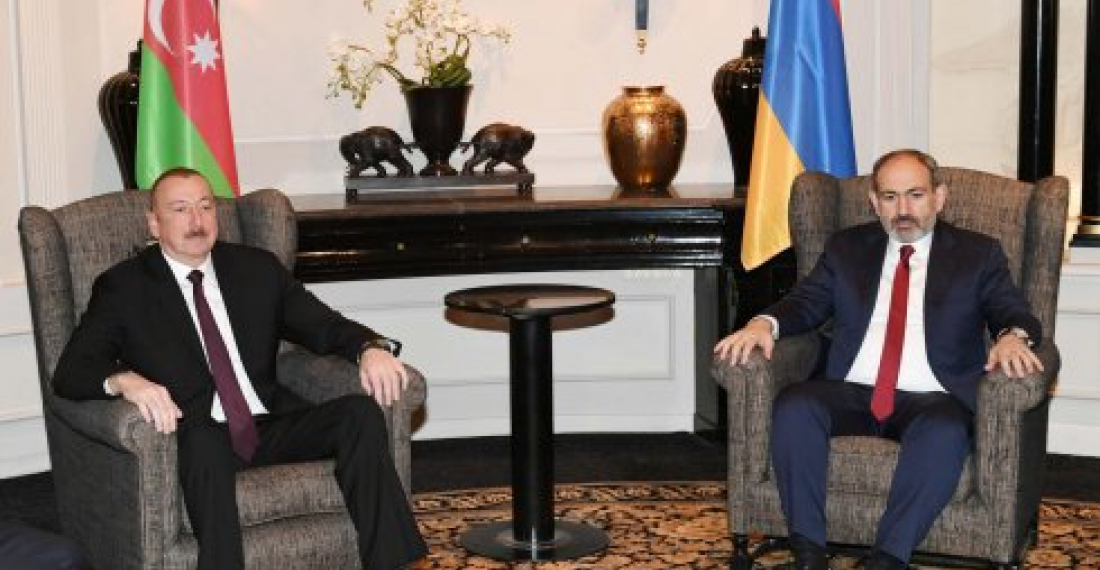The president of Azerbaijan Ilham Aliyev and the prime Minister of Armenia Nikol Pashinyan met in Vienna on Friday in the latest efforts to resolve the Karabakh conflict.
Updated with Foreign Ministers Statement
Shortly after the talks ended, a "Joint Statement by the Foreign Ministers of Armenia and Azerbaijan and the Co-Chairs of the OSCE Minsk Group" was posted on the OSCE website. It said:
"The meeting took place in a positive and constructive atmosphere and provided an opportunity for the two leaders to clarify their respective positions. They exchanged views about several key issues of the settlement process and ideas of substance.
The two leaders underlined the importance of building up an environment conducive to peace and taking further concrete and tangible steps in the negotiation process to find a peaceful solution to the conflict.
Recalling their conversation in Dushanbe, the leaders recommitted to strengthening the ceasefire and improving the mechanism for direct communication. They also agreed to develop a number of measures in the humanitarian field.
The Prime Minister and President instructed their Ministers to meet with the Co‑Chairs again in the near future. They also agreed to continue their direct dialogue."
Update 1 - 13.30 GMT
The president of Azerbaijan Ilham Aliyev and the prime Minister of Armenia Nikol Pashinyan had a two hour tete-a-tete in Vienna on Friday in the latest efforts to resolve the Nagorno-Karabakh conflict.
The two leaders had three informal meetings since the change of government in Armenia last spring brought to power a new leadership led by Pashinyan. The Vienna meeting was however the first formal meeting between the two leaders and was mediated by diplomats from France, Russia and the United States who co-chair the OSCE Minsk process.
The two leaders met the three diplomats after their closed bilateral discussion.
(This story will be further updated shortly)
source: commonspace.eu
photo: Picture courtesy of the twitter feed of @HikmetHajieyv







